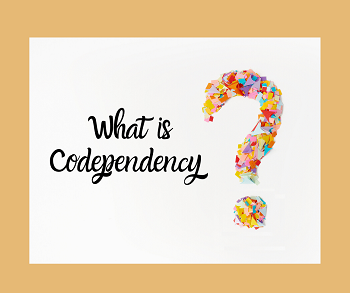Codependency is defined as a series of behaviors that involve or result from being physically, emotionally, or in any other way completely devoted to another individual, usually at a detriment to their own wellbeing. There are several types of codependency. In most codependent relationships, there is one person who enables the behavior of the other individual. Although in some instances two individuals can be codependent in different ways to each other.
Am I Codependent?
Some of the common characteristics that may be found in co-dependents include low self-esteem, poor communication skills, doing things for others even when it causes them distress, or a tendency to be very controlling and untrusting. It is important to remember that no two codependent people will be the same. Here are some more signs someone may be codependent:
• Have difficulty identifying and labeling what they are feeling or what they need
• Do not recognize the unavailability of those people they are attracted to
• Value other’s approval and yet perceive themselves superior to others
• Fear abandonment as they don’t perceive themselves as lovable or worthwhile
• Are extremely loyal, sometimes staying in harmful situations too long
• Are hypervigilant of other’s feelings and tend to take on other’s feelings
• Attempt to convince others of what to do, think or feel often giving unsolicited advice
• Become resentful when others don’t take their advice or don’t’ see “all they do for them”
• Use blame or shame on others to get their needs met
• Give and give expecting something in return and then when don’t get it explode
• Overcommitted to what others want and often ignoring their own
• Inability to set proper boundaries or even know what is an appropriate boundary
• Tendency to perfectionism and having a harsh inner critic
Codependency is usually learned from a young age. Often a child grows up in a home or around people that exhibit codependent behaviors, have an overly critical or neglectful parent, or a parent has a drug, alcohol addiction or their is a mental illness in the family. Specific experiences can lead to codependent behaviors, including neglect, abandonment, abuse, and several others.
Not everyone who has a codependent personality or exhibits these behaviors have necessarily suffered a traditionally recognized form of abuse. In some cases, a person can be raised to believe that they must always put others first, that they must serve others, or that sacrificing their own needs is the ultimate display of loving another. We are not claiming that every perfectionist is codependent.
Codependency and Parenting
Since codependency is mostly a learned behavior, it is very likely that a parent who shows signs of codependency will end up continuing the cycle with their own children, particularly if they learned behaviors from their own parents. A codependent parent may be what is often referred to as a “helicopter parent” showing signs of trying to control everything. These parents are often very strict and have a hard time with anything that involves their children asserting any type of independence. This tends to be worse if the child and codependent parent are of the same gender, though not always.
Codependency and Relationships
Codependent individuals come across early in relationships as very giving and devoted. Where codependency becomes a problem is when giving and devotion are more important than their own physical, mental, and emotional health. The hardest part of recognizing codependency in a relationship is that early on the behaviors are often pleasant. It is not until you are very serious in a relationship that the negative sides of the behavior; i.e. controlling behavior, low self-esteem, neediness, become obvious.
Codependency and Mental Illness
While codependency is not necessary a specific and recognized mental illness, it is closely related to several mental health conditions and can lead to a number of problems.
Some of the known mental health conditions that can be found in codependent individuals include:
• Anxiety
• Personality disorders
• Eating and behavior disorders
Final Thoughts
Codependency does not have to control your life. If you, or someone you care about exhibits signs of codependency, please reach out and find a therapist that can help you (or them) learn new behaviors that put personal needs ahead of those of others.
Reach out for help. Call today 916-426-2757

